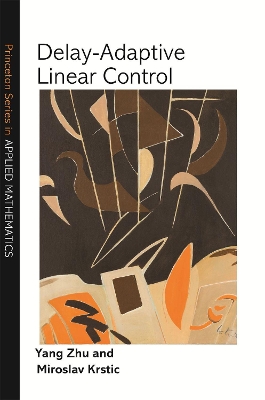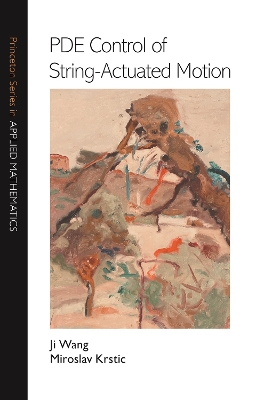Princeton Series in Applied Mathematics
2 total works
Actuator and sensor delays are among the most common dynamic phenomena in engineering practice, and when disregarded, they render controlled systems unstable. Over the past sixty years, predictor feedback has been a key tool for compensating such delays, but conventional predictor feedback algorithms assume that the delays and other parameters of a given system are known. When incorrect parameter values are used in the predictor, the resulting controller may be as destabilizing as without the delay compensation.
Delay-Adaptive Linear Control develops adaptive predictor feedback algorithms equipped with online estimators of unknown delays and other parameters. Such estimators are designed as nonlinear differential equations, which dynamically adjust the parameters of the predictor. The design and analysis of the adaptive predictors involves a Lyapunov stability study of systems whose dimension is infinite, because of the delays, and nonlinear, because of the parameter estimators. This comprehensive book solves adaptive delay compensation problems for systems with single and multiple inputs/outputs, unknown and distinct delays in different input channels, unknown delay kernels, unknown plant parameters, unmeasurable finite-dimensional plant states, and unmeasurable infinite-dimensional actuator states.
Presenting breakthroughs in adaptive control and control of delay systems, Delay-Adaptive Linear Control offers powerful new tools for the control engineer and the mathematician.
New adaptive and event-triggered control designs with concrete applications in undersea construction, offshore drilling, and cable elevators
Control applications in undersea construction, cable elevators, and offshore drilling present major methodological challenges because they involve PDE systems (cables and drillstrings) of time-varying length, coupled with ODE systems (the attached loads or tools) that usually have unknown parameters and unmeasured states. In PDE Control of String-Actuated Motion, Ji Wang and Miroslav Krstic develop control algorithms for these complex PDE-ODE systems evolving on time-varying domains.
Motivated by physical systems, the book’s algorithms are designed to operate, with rigorous mathematical guarantees, in the presence of real-world challenges, such as unknown parameters, unmeasured distributed states, environmental disturbances, delays, and event-triggered implementations. The book leverages the power of the PDE backstepping approach and expands its scope in many directions.
Filled with theoretical innovations and comprehensive in its coverage, PDE Control of String-Actuated Motion provides new design tools and mathematical techniques with far-reaching potential in adaptive control, delay systems, and event-triggered control.

